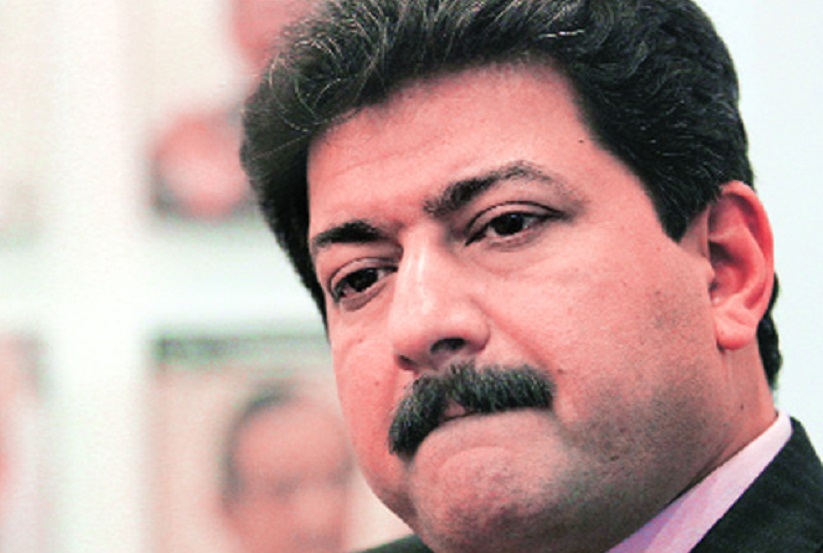सवाल बनता है कि क्या कोई पत्रकार हमारे देश भी हमीद मीर की तरह अपनी हिफाजत को लेकर इस कदर अपनी जिंदगी में दो चार हो रहा है।, शायद नहीं। तो फिर क्यों नहीं? क्यों कि हमारे देश में जनपक्षधरता के मसले पर अपनी अलोकतांत्रिक हरकतों के लिए कुख्यात नेताओं वाली सरकारों और सिर्फ पैसे के भूखे मीडिया घरानों को चला रहे पत्रकारों में कोई फर्क नहीं दिखता है। हमीद मीर इन दिनो डरे हुए हैं। वह अपना डर ‘वाशिंगटन पोस्ट’ से साझा करते हैं। वह अपनी हिम्मत और बेबाकी के नाते पाकिस्तान के टीवी मीडिया में शीर्ष हैसियत रखते हैं। उन पर एक बार आतंकवादी अटैक हो चुका है। वह आईएसआई की चेतावनी के बावजूद पीछे नहीं हटे। अब उन्हें अपनी जिंदगी की हिफाजत सता रही है। हमारे देश के मीडिया पर तो बड़ा सीधा सा फार्मूला लागू होता है कि जब कर नहीं, तो डर किस बात का। यानी जब कोई हिम्मत का काम कर गुजरे, तभी तो….हमारे यहां तो पत्रकारों का एक बहुसंख्यक धड़ा मंत्रियों, अफसरों की दलाली में जुटा रहता है।

विस्तार से अंग्रेजी में प्रस्तुत हैं, वाशिंगटन पोस्ट में प्रकाशित हामिद मीर की बातें-
The most famous television journalist in Pakistan lives like a fugitive. Hamid Mir tells no one where he is going, how he will get there or where he will spend the night.
At Mir’s office, his curtains are always drawn. He uses at least two cellphones and, until recently, he rotated among three residences to obscure his precise location, even from friends.
Even with all these precautions, Mir is anxious and jittery, most of all when he gets into the back seat of his bulletproof car to drive to the television studios for his show, “Capital Talk.”
Mir is not just trying to avoid recognition; he also is desperately trying to avoid a repeat of what happened to him a little over a year ago as he was being driven from the airport to the Karachi offices of Geo Television, the network that employs him.
That day, a man standing along the road opened fire on his car.
When the first bullet shattered the rear passenger window and tore through his right shoulder, he actually felt relieved, he said. He was still alive.
But then he realized that four men on two motorcycles were chasing his car through the city streets, guns out.
Bullets pierced his body, including his right thigh, stomach and bladder. By the sixth impact, he began losing consciousness, and his mother, father, wife and children appeared.
“Their faces went around in my head,” he recalled.
The attack on Mir and the continuing death threats against him are emblematic of a broad backlash against transparency and independent journalism in many parts of the world.
Six out of seven citizens have little or no access to insightful reporting about their governments even though the Internet has made other types of information ubiquitous, according to organizations that monitor reporting internationally.
Worldwide, the last three years have been particularly hard on those who gather the news: An average of more than one journalist a week has been killed for reasons connected to his or her work, or about 205 journalists, according to the Committee to Protect Journalists, a nonprofit organization that investigates attacks on the media.
This year, at least 38 more have been killed. The dead include eight Charlie Hebdo journalists in Paris, a Brazilian radio broadcaster tortured and shot, an Indian reporter burned to death for investigating local corruption and a Japanese freelance photographer who was beheaded by the Islamic State in Syria.
Pakistan, with its volatile mix of shadowy security forces, internecine political battles, terrorist groups and criminal networks, is one of the most dangerous countries for local journalists outside of war zones, according to the United Nations and press freedom groups. Since 2001, 52 journalists have been killed here because of their reporting. Criminal charges have led to convictions in only two cases.
वाशिंगटन पोस्ट डॉट कॉम से साभार
